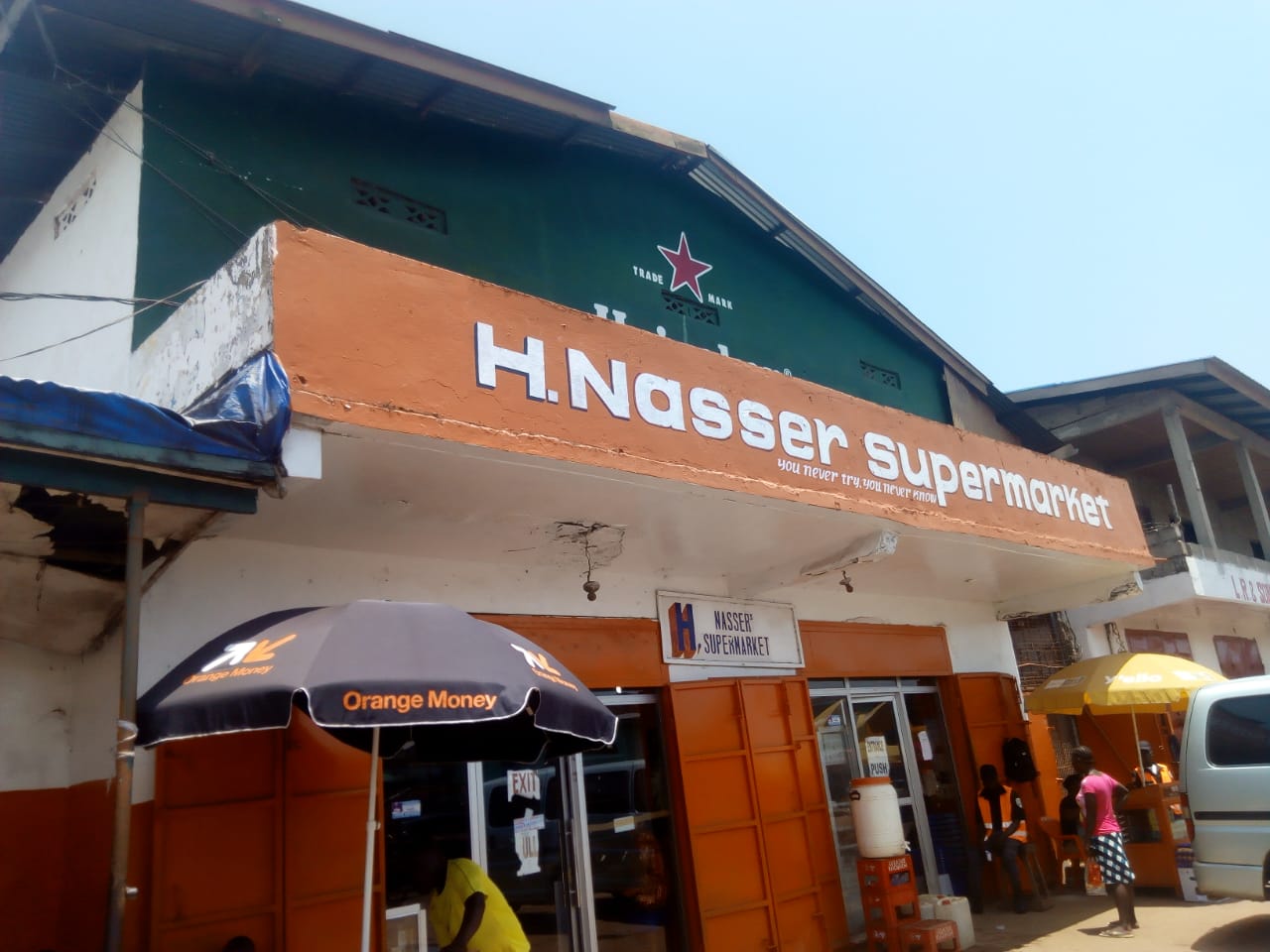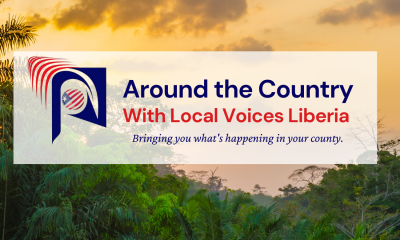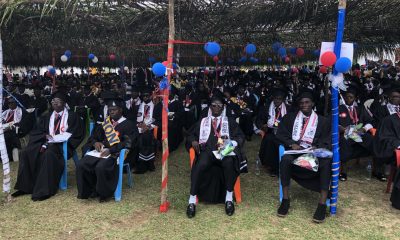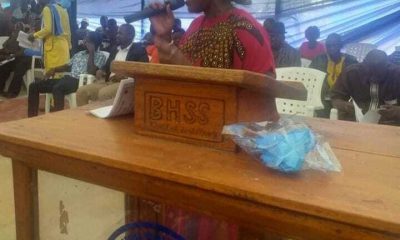
Buchanan – People living with disability in Buchanan, Grnad Bassa County have complained that the coronavirus regulation of social distancing is obstructing their regular means of getting ends meet, after they were recently prohibited from gathering at the front of supermarkets to ask shoppers for alms.
For several years, these disabled people sit at the entrance of supermarkets in the port city hoping to be given money, a means they rely upon to get daily bread.
Some of the physically challenged told LocalVoicesLiberia that before they were prevented from gathering in front of the supermarkets, some unknown “government officials” had instructed the management of the supermarkets to disallow them from the premises.
The Liberian government has been pushing for people to follow social distancing rule as a means of curbing the spread of COVID-19 in the country.
“We used to sit in front of the supermarket to beg people before we eat but one man told the supermarket owner not to allow us sit there again to beg because we are sick people who can carry the coronavirus faster,” alleged Arthur Vah, a member of the Buchanan disabled community.

Arthur Vah, a physically challenged man, has a been a regular at supermarkets on Tubman Street for many years – where he begs for alms to feed his family
“We felt very bad when they told us to leave from the only place we are depending on to get small thing for our families. Besides, the people said they are afraid of us because we as disabled are vulnerable to coronavirus”.
They have now decided to relocate to continue seeking help from passersby and shoppers while calling on the government to come to their aid during the State of Emergency.
“Look, I am a woman, I have children and I just can’t sit and see them looking hungry and so I have to come to this place to beg people,” said Mamie Gbah, a disabled mother of three who said that street begging has been her only means of feeding her family.
“If we will be treated like different people then we all will die from hunger and not the coronavirus that we all are fighting”.
Gbah called on the Grand Bassa County Legislative Caucus to capture the disabled community in the government’s stimulus plan for the State of Emergency.
“Most of the rich people don’t like poor people so that’s why we are suffering and so we want the government to help us or else we will die from hunger in this coronavirus crisis,” she added.
“We felt very bad when they told us to leave from the only place we are depending on to get small thing for our families. Besides, the people said they are afraid of us because we as disabled are vulnerable to coronavirus”.
Hassan Nasser, proprietor of the H. Nasser Supermarket, denied stopping the physically challenge from gathering in front of his supermarket but he said the mandate was given by a government official, who he did not name.
“Those people [disabled people] have been in front of my supermarket for many years and I have never put stop to them because I know that they have to live and that’s the only means they have for now,” said Nasser.
“Sometimes I can even help them with something because I feel their situation and know how it is for them and so I didn’t do so but a government official told me to follow the coronavirus protocols by telling them to stay home for some weeks”.
Nasser said he’s afraid of violating the Covid-19 regulations so he asked the disabled people to stay home for few weeks.
“I am a humanitarian but they have to understand that part of the health protocols call for social distancing and they are always closer together and interacting with people every day which is also a risk for their lives,” he said.
Meanwhile, Eddie Williams, the County Information Officer, refuted allegations that the county administration ordered that the disabled people are removed from the front of the supermarkets.
“The county administration has in no time informed the management of the Hassan Nasser Supermarket to take disabled people from their hustle ground,” he said
“We will find out to know which of the government official did that but the Superintendent knows nothing about how they took the decision”.
Local Voices Liberia is a network of dedicated Liberian journalists based in the 15 counties working to lift the development concerns and progress of rural communities.


Methodology

True
The claim is rigorous and the content is demonstrably true.

Half True
The statement is correct, although it needs clarification additional information or context.

Unproven
Evidence publicly available neither proves nor disproves the claim. More research is needed.

Misleading
The statement contains correct data, but ignores very important elements or is mixed with incorrect data giving a different, inaccurate or false impression.

False
The claim is inaccurate according to the best evidence publicly available at this time.

Retraction
Upon further investigation of the claim, a different conclusion was determined leading to the removal of the initial determination.

Toxic
A rude, disrespectful, or unreasonable comment that is somewhat likely to make you leave a discussion or give up on sharing your perspective. Based on algorithmic detection of issues around toxicity, obscenity, threats, insults, and hate speech;
































































































































































































































































































































































































































































































































































































